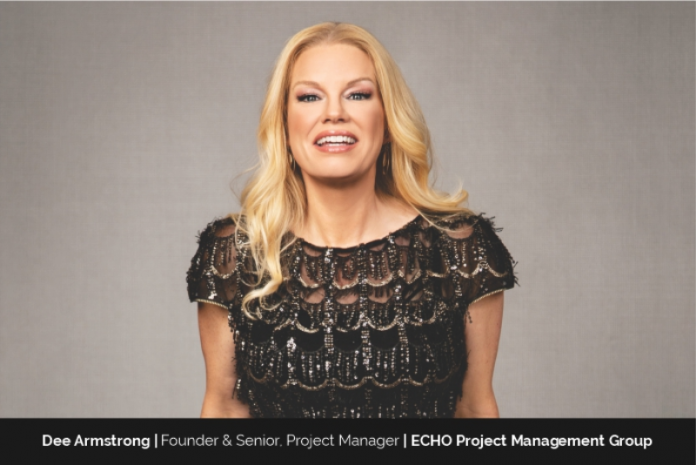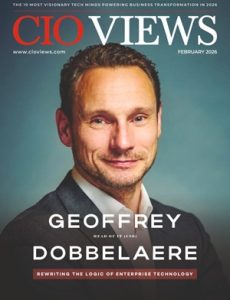ECHO Project Management Group, which Dee Armstrong founded, may not have changed the world, but it is unquestionably improving patient healthcare services. After the passing of her grandmother and uncle, Dee considered doing something for patients, particularly those dealing with terminal and mental illnesses. Dee’s grandmother died after battling Alzheimer’s disease and her uncle Don suffered from severe Schizophrenia. Both of them failed to get proper care from their healthcare providers. On their deathbeds, Dee made a vow to them that she would alter the way healthcare providers interact with their patients one study at a time. The creation of ECHO is a result of this commitment.
Advancing the Processes
By recruiting patients & caregivers who are willing to share their experiences with uncommon illnesses, medical problems, and mental illnesses, Dee developed ECHO to enhance patient-centered medical research. ECHO plays a pivotal role bridging the gap between patients and the healthcare community, providing a connection and creating visibility for patients that have often felt nonexistent in the past. Their valuable shared information regarding their diagnosis and course of treatment will be used by doctors, drug manufacturers, and other healthcare organizations to enhance patient care and advance the healthcare industry. They are not just a number any longer, they are a VOICE. With these solid principles in mind, the team at ECHO implements them daily.
Life before ECHO
Dee was motivated by watching her parents build prosperous businesses throughout her youth. It instilled in her two crucial values: integrity and a strong work ethic. These principles have been the foundation for her success. With a deep passion to change things for the better, she set out with a steadfast focus on her vision. A vision and end goal which is dynamic with a strong focus on the end result, and how each person’s experience influences and furthers healthcare and others in the community.
Dee enjoys challenges because they put one to the test and compel people to either advance and adapt or retreat and stay the same. She says, “What fun is life if you can’t learn and grow? Here at ECHO, we love challenges, as we are known for our passion and persistence to recruit rare medical condition audiences.” She further adds, “To be able to get a rare audience of people HEARD is life changing for them, us, and the healthcare industry.”
ECHO Project Management Group
The ECHO team goes above and beyond to foster a compassionate environment, refuses to let uncommon medical disorders or diseases define a person or their life, and advocates on their behalf to advance the healthcare industry. The organization recruits for a variety of rare illnesses and conditions, with a focus on cancer and mental health. It provides numerous study approaches that make use of various data-specific possibilities.
- TDI’s/WATI’s– Nationwide telephone interviews, where patients are invited to share their experiences through telephone and web-assisted telephone interviews with their computer to view stimuli. They are asked pertinent questions relating to their diagnosis and asked to provide individualized insight regarding how to better help those with their medical condition.
- IDI’s – In-depth interviews face-to-face with experienced strategists
- In-Facility – Patients are invited to join one or more interviewers at a medical facility to share their healthcare story. They are encouraged to share additional feedback and expertise regarding their respective diagnosis.
- In-Home Ethnography – Patients consent for an interviewer to come to their home for an in-depth personalized interview regarding their diagnosis. Patients are given the opportunity to show in greater detail how their chronic condition has affected their life, including what they have done to improve their overall daily wellbeing and what tools and assistance is lacking.
- Online Forums – Online Focus Groups allow for free-flowing conversation between the moderator and all participants. Patients are invited to share their stories, as well as offer feedback and insight. Different aspects of the diagnosis may be explored to better understand the patient experience.
- Additional Avenues – Some studies utilize alternative research collection in order to better understand the patient’s journey. Some examples may include short home video descriptions, video blog diaries, or written stories in an essay form.
- Hybrid Methods (Two or more study options)
Leading to Make a Difference
ECHO stands out because it gives each panelist personal attention. The staff puts a lot of effort into upholding connections with all of its patients, caregivers, and medical specialists. Dee states, “We aren’t your traditional medical research company.” She further adds, “We go the extra mile each and every time, whether it be growing our panel organically or simply maintaining the strong relationships we have formed within our panel, support groups, foundations and network of external recruitment avenues.”
The team frequently finds itself engaging in 45-minute conversations with the panelists. When it comes to the medical industry, they long for that human connection. The difference is WE CARE and WE WANT to make a difference in each person’s life for their future healthcare needs.
Senior Project Manager of ECHO
Dee’s main role at ECHO is to inspire and instill passion on a daily basis. She finds, “We all have good and bad days, and we are all very different people.” The team dedicates time on a weekly basis for a group call to recenter and discuss personal issues. Focusing attention on supporting one another through life challenges we all experience as women, wives, mothers, daughters, and sisters. She says, “We aren’t just coworkers; we are also each other’s biggest supporters and mentors.”
Understanding Balance
Work is a fine balancing act, much like life. Dee observes that while taking a break is something everyone should do, company owners often feel bad about not working when their doors are open. She says, “You eat, sleep, and breathe your company. You take it from a concept, a baby if you will, and teach it how to eat and walk on its own.”
Dee considers that one has to relinquish control as he or she passes it off to the babysitter, aka coworkers, for care. She mentions, “I had to learn that you must stop and recharge on your days off, and this is a MUST. I also drill this into the team as well. Rest when you can, as everyone needs to recharge and reset, and you must have time for self-care, family, and friends.”
Women in Healthcare
Women have come a long way. Women are now able to dream of their future desires and make them happen! Dee asserts, “We can do anything we set our minds to do. This was not always the case, as we all know.” Women are now being heard, and in a big way. ECHO is a woman-owned and operated company.
As a female leader, Dee believes that rethinking how ECHO reaches medical patients with rare conditions has been the organization’s most significant achievement in implementing referrals from the healthcare arena. It has found a niche in providing high quality pre-vetted respondents to physicians and its end clients. She says, “We have many wonderful plans in the works. We are adding services that will connect patients across their conditions to offer support and feedback. I guess you will have to stay tuned for the reveal!” She further adds that ECHO is a small but powerful company that is making huge strides in the future of healthcare, whether it is medication, devices, or simply feedback to healthcare professionals on how to better a patient’s experience.
“We are not another number. WE are human. WE need to be HEARD!”





